More than one hundred senior global business leaders gathered for the fourth annual Out Leadership: Asia Summit 2016, hosted by HSBC. Leading figures from the financial services, technology and other industries continued the dialogue about corporates’ role in advancing LGBT+ equality around the world.
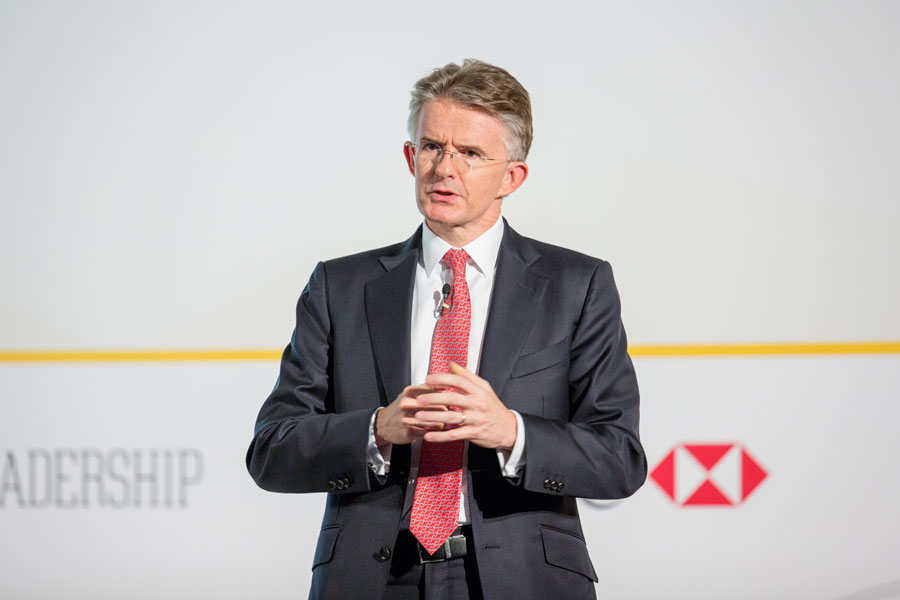
John Flint, Chief Executive, Retail Banking and Wealth Management, HSBC Holdings PLC, kicked off the day: “Two years ago, HSBC’s Group Chief Executive Stuart Gulliver addressed the second Out Leadership Summit in Asia. Stuart’s speech that day had a profound impact on HSBC. It wasn’t just the content of his speech that made a difference – it was the fact that Stuart himself took initiative to say that diversity, and in particular, LGBT diversity – is important to us. His speech encouraged a number of conversations within our company that otherwise wouldn’t have happened.”
“The fact that he did it has had a huge impact on me,” Flint continued. “I realized that I was a passive supporter, and that that wasn’t good enough. I’m a dad – I have an 18 year old and a 15 year old at home – and I want nothing more than for both of them to fulfill their potential. When Stuart asked me if I would speak, I was honored to say yes. It really is a privilege for us to host this event in this building, and it’s a personal privilege to me to have had the opportunity to say a few words.”
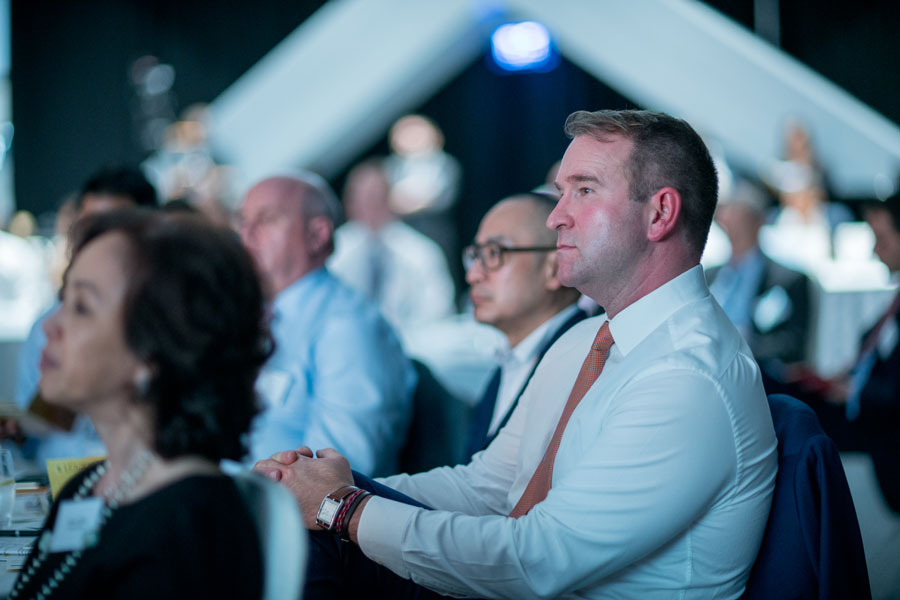
Out Leadership Founder and Principal Todd Sears addressed attendees next. “Forward-looking companies are aware of the business benefits that arise from creating inclusive workplaces, but taking steps to do so can be risky in countries with high levels of hostility toward LGBT+ people,” he noted. “Today we’ll discuss how multinational companies are addressing this risk while remaining focused on their core values, and ultimately their bottom lines. We’ll also dive deep into the ways in which family and culture can impact the experience of being LGBT+ in China and Hong Kong, and talk about how businesses can help LGBT+ employees who must navigate between work and home environments that aren’t quite in sync when it comes LGBT+ inclusion.”
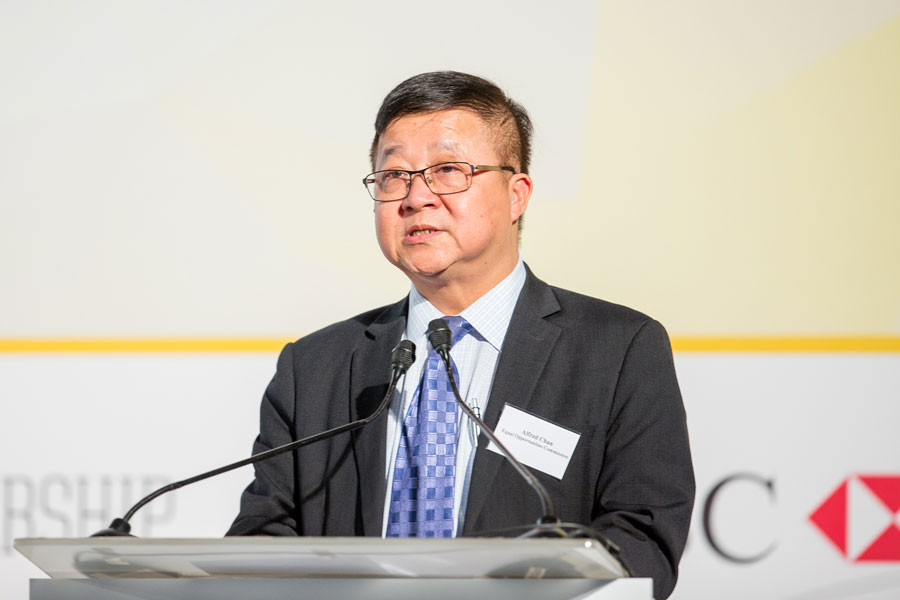
Alfred Chan, Chairperson of Hong Kong’s Equal Opportunities Commission, introduced the first panel discussion, “Championing Equality While Managing Risk.”
“When it comes to equality, in the past sometimes the emphasis has been placed on the price that must sometimes be paid. But I hope that from now on, when we think about equality, we think about the profit to be gained. Thank you for inviting me to speak today. The Equal Opportunities Commission is proud to call Out Leadership a partner, and we’ve been proud to support your Summit in Asia each of the last four years.”
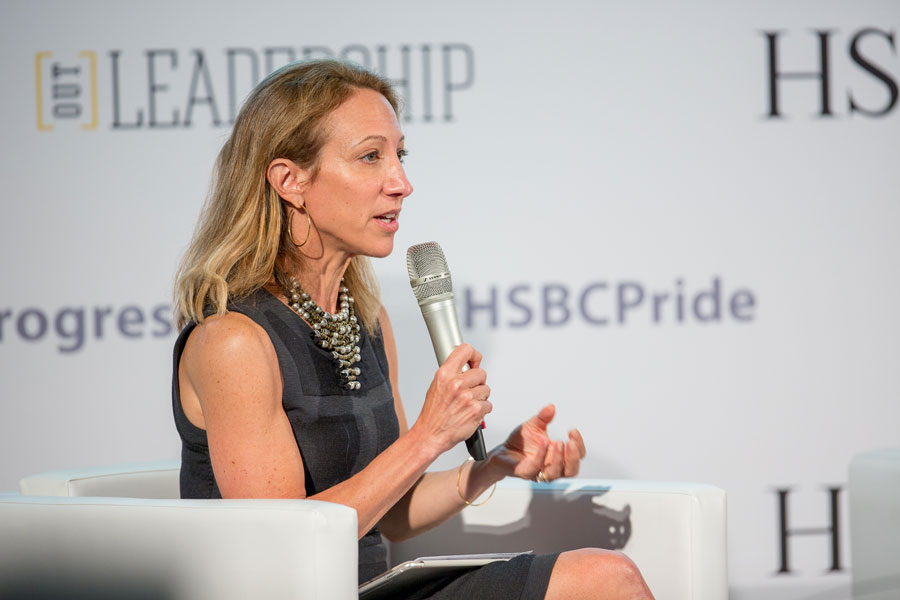
Tara Joseph, Chief Correspondent Asia, Thomson Reuters, started the first panel off by taking a show of hands from the audience about whether they thought the Asia Pacific region as a whole has made solid progress on LGBT+ issues in the past 5 years. “A majority feel that we’ve made some progress, but there are some sincere doubters in the room.”
She elaborated: “We have speakers representing three of the biggest brand names in finance onstage. These are Western companies, founded in Western countries, subject to their laws and reflective of their cultures. We’ll investigate whether this ethos works in the Asian region, when companies are running their businesses and managing staff.”
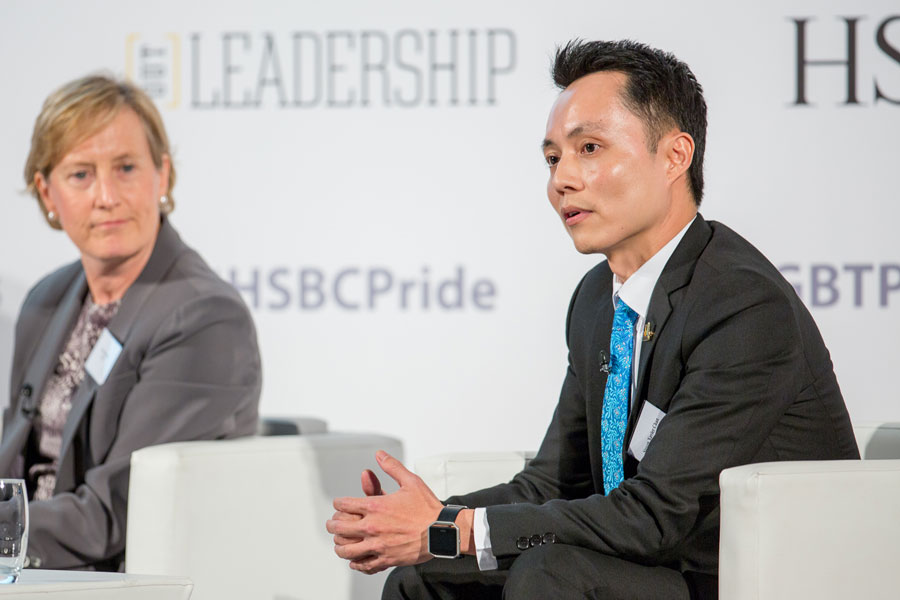
Steven Xavier Chan, Managing Director and Regional Head, Regulatory and Government Affairs, State Street, noted that “Asia is very diverse, as a region, and there are differing levels of understanding about what the diversity agenda is and should be. In lots of places, including here in Hong Kong, when you mention diversity, what first comes to mind for people is gender diversity. You have a lot of functions like trading and investment banking that are very male-dominated, and LGBT questions are very much an afterthought, if it’s a thought at all. So that’s where global policies and protections come into play, because without them it can be very hard to bridge those gaps.”
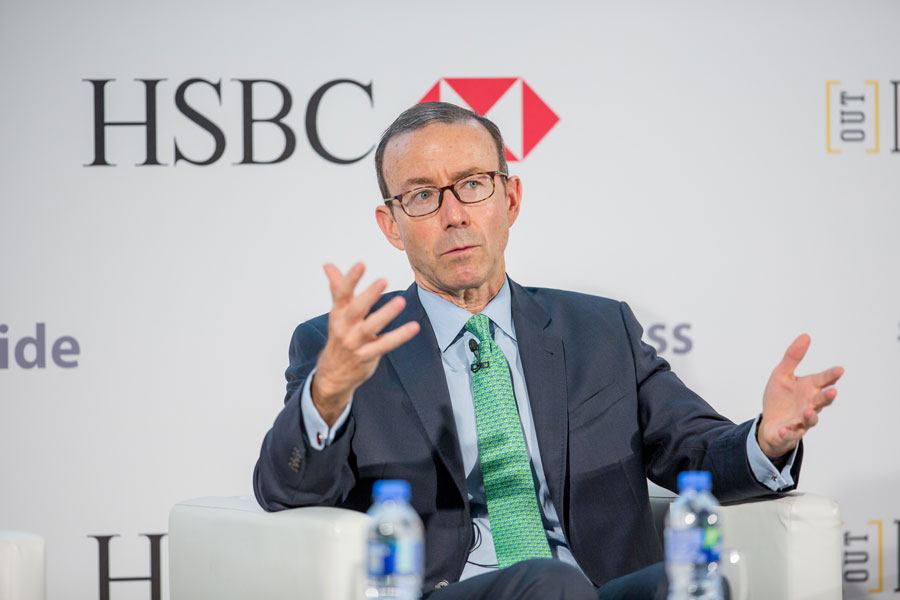
Stephen Lackey, Chairman of Asia Pacific, BNY Mellon, emphasized that adapting to these sorts of changes is an important aspect of what makes successful companies successful: “We can’t be the same company we were 20 years ago – we would be dead. In order to ensure that we are successful in the longer term, we have to change – and we have to bring change throughout the entire company, not just in the pockets located where the laws are most favorable.”
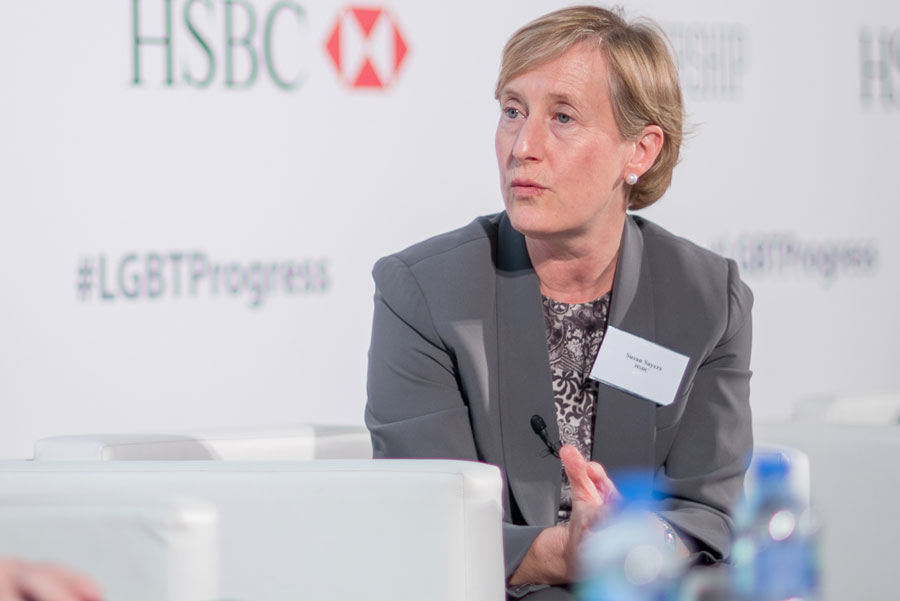
Susan Sayers, Regional General Counsel, HSBC, noted that while, “internally it is not hard work – we have a global position internally around LGBT and we stand true to it – we are nevertheless conscious of not putting our employees at risk in those countries where it is still illegal to be LGBT in one form or another.”
Following the first panel, participants had the opportunity to work with one another in small groups to exchange practice innovations for managing risk.
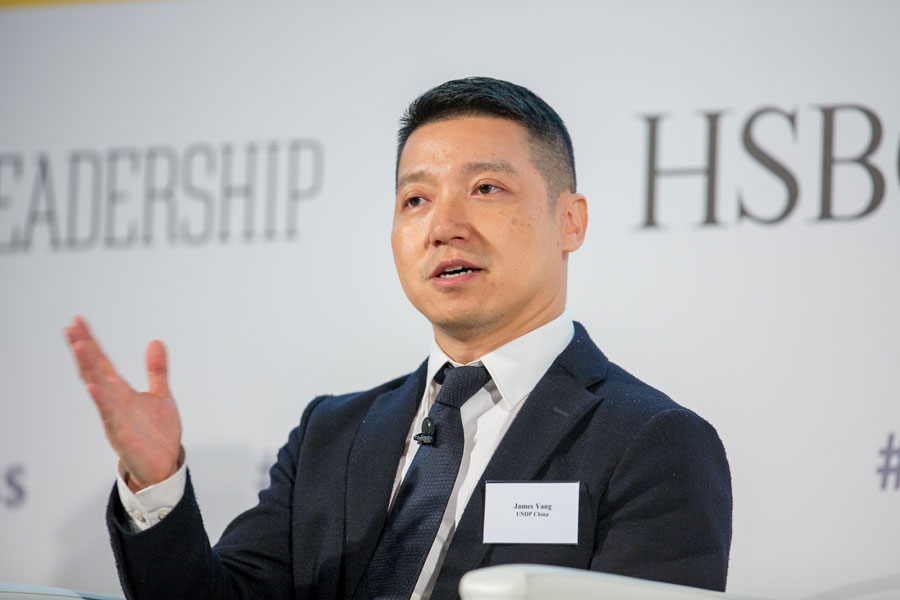
James Yang, Policy Analyst, UNDP, China, Being LGBTI in Asia, introduced the next panel, “Businesses as Bridges: Navigating Family, Culture, and Being LGBT+ in China,” by sharing some of the highlights of his organization’s annual report on the climate for LGBTI people in China.
“We know that people aren’t completely negative about LGBT people when it comes to their workplaces. They simply lack awareness on these questions. There’s very little in the media about the LGBT community, and there’s a lack of understanding and familiarity. And LGBT people are not coming out broadly, but in many cases they’re entering into heterosexual marriages to appease their families.”
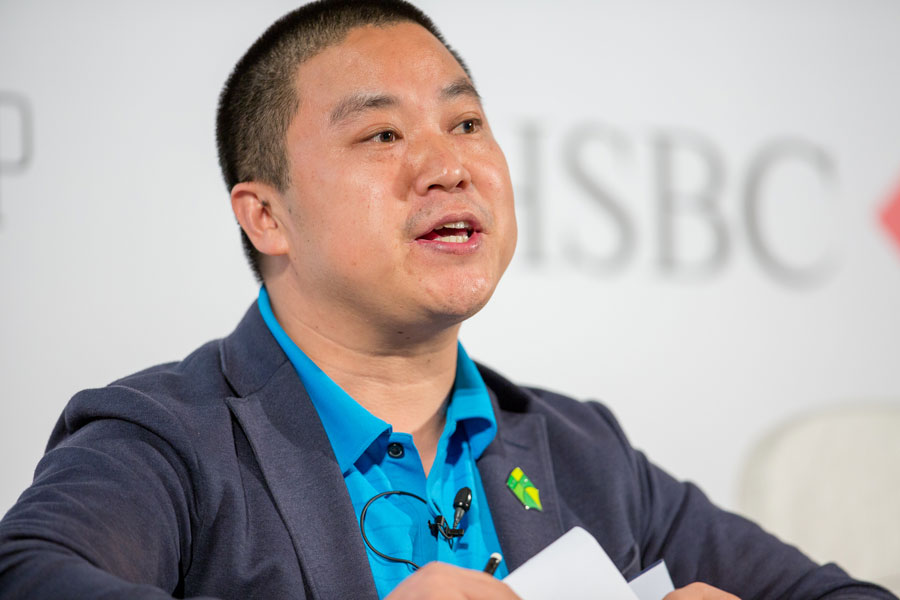
Zhijun Hu (Ah Qiang), Executive Director and Founder, PFLAG China, spoke about the persistence of the closet in China. “When we first established PFLAG in China, in 2008, it was very difficult to find parents who were willing to talk to the public about how they felt. In Chinese culture, many parents are concerned, when they find out that their child is gay, that they will lose face. And they worry that their child won’t be able to carry out the family bloodline.”
“We started a hotline, and we started inviting parents to come to our talks, to have an opportunity to talk face to face. At first we targeted Beijing, Shanghai and Guangzhou. When we started, we’d be happy to have 50 people at our events. Now, 9 years later, we have 800 participants. People are turned away at the door. Our network has expanded to cover 50 cities in China. And we’re still growing.”
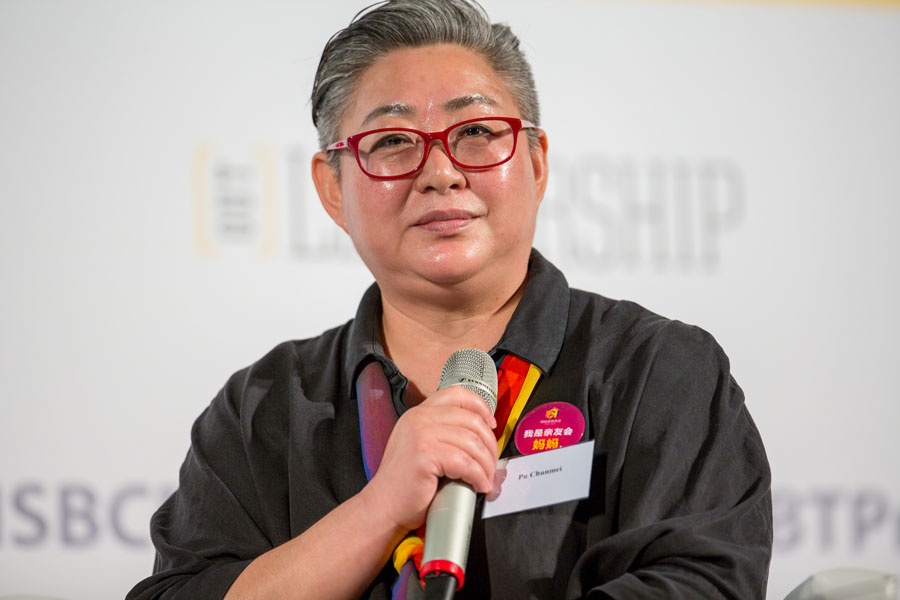
Mei Jie (Pu Chunmei), subject of the documentary Inside the Chinese Closet, and a former executive of PFLAG China, told her story: “My son came out to me. And after 24 hours of panic, I decided to send him a text saying I would accept him. About a year later, in 2007, I started wondering: why don’t I ever see other gay people. Was my son being bullied? And I decided that I needed to be there for him. I quit my job and moved to Shanghai to be with my child.”
“My son was very nice to me, and every time there was a LGBT gathering he brought me along. I learned that homosexuality includes women! And soon, I realized that not every gay person is as lucky as my son, and not everyone gets acceptance from their family. I met Ah Qiang, and with his help I started doing public work. My first call on the hotline came on the first day of CNY. And my own knowledge of LGBT has been enhanced by answering calls. The world is very diverse. And 11 years later, we have people seeking our help every day.”
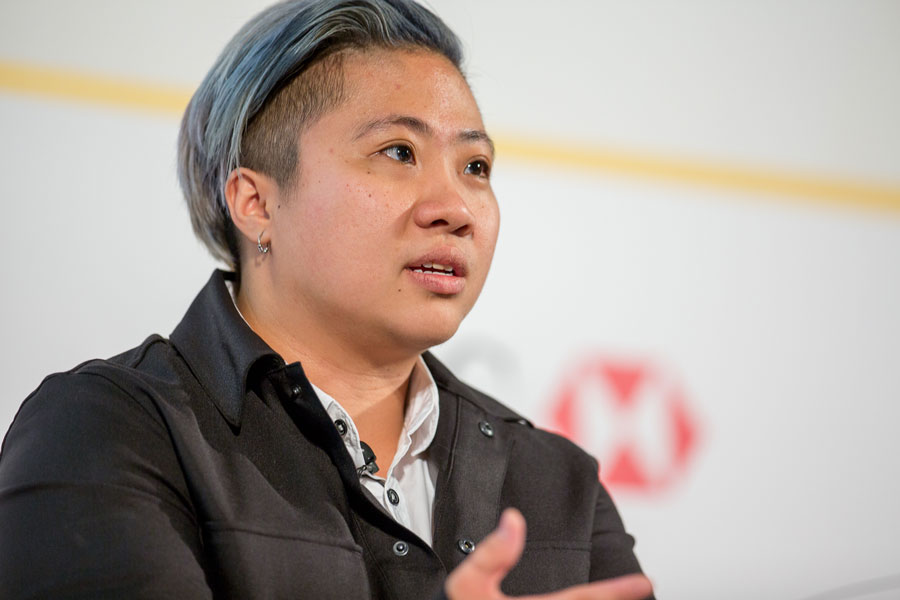
The Summit’s Leadership Interlude found Theresa Goh, Paralympian Medalist, Singapore, in conversation with Bess Hepworth, Partnerships and Community Manager, APAC, Out Leadership (pictured below).
“It’s always been a part of me to be a woman, a queer person, a person with a disability,” said Goh.“In Singapore it’s an open secret for some people to be gay… but if I tried to keep that part of myself from being known, I wouldn’t be true to myself. It’s such a liberating feeling of being able to talk about this and feeling safe enough talking about it. I can’t imagine a world where I have to stop talking about who I am. I can’t not talk about it.”
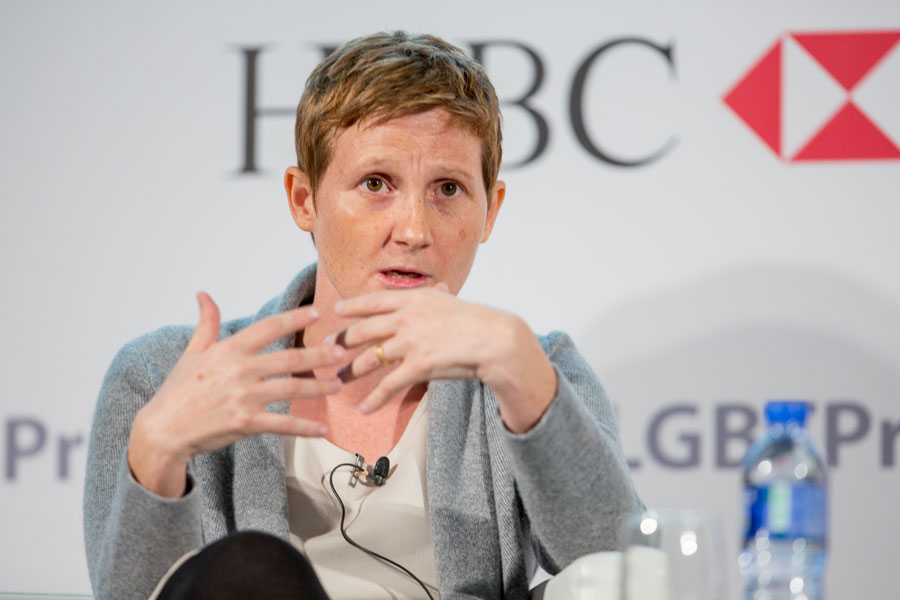
The final panel of the day also engaged with the climate for LGBT people in Singapore. “Singapore: Pink Dot and the Corporate Community,” moderated by Hayden Majajas, APAC Head of Diversity and Inclusion, Bloomberg L.P., featured perspectives from Alan Seah, Steering Committee Member, Pink Dot Singapore (pictured below).
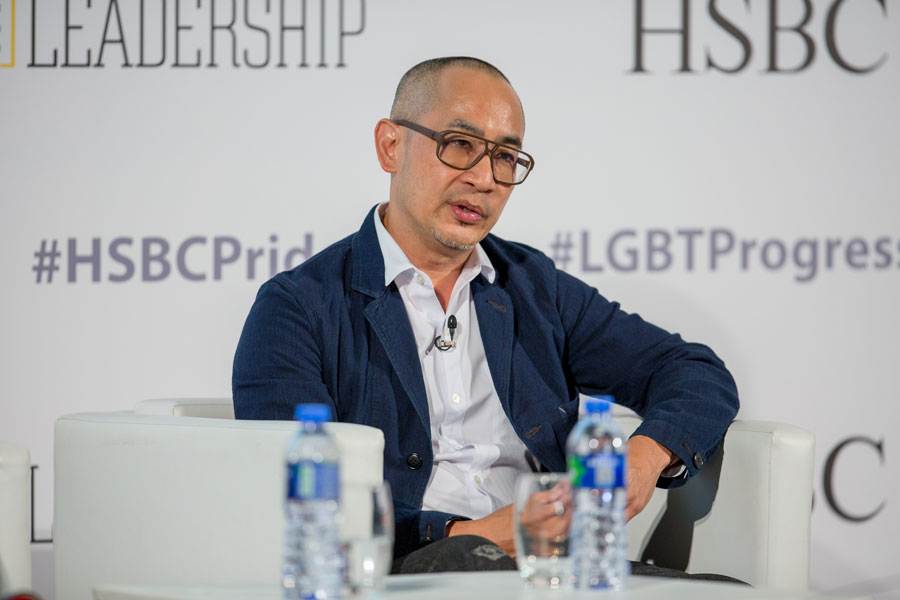
“Not all Singaporeans are conservative,” said Seah. “But there’s a very small, very vocal group against Pink Dot. And this year they went on a rampage of letter writing. It’s not grassroots, so much as it’s astroturfing, in that they’re making their movement appear much larger than it actually is. They wrote to all our sponsors and to the government. And they’ve been somewhat successful. They’ve succeeded in making at least some people believe that the foreign bosses of multinational companies are forcing their employees to take part in Pink Dot.”
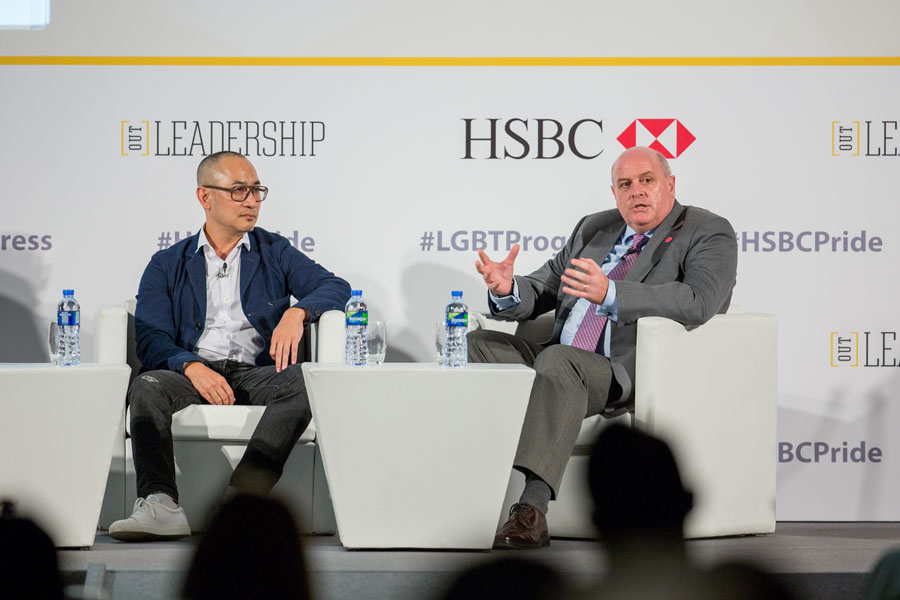
Andy Milnes, CEO Integrated Supply and Trading (Eastern Hemisphere), BP, noted that “BP received a letter. And, as Alan said, it was very cleverly worded. It said we were forcing employees to go against their values. But we, at BP, were determined that we weren’t going to be bullied. We made a very firm stand as to what we stood for as a company. It became clear quite quickly that it was an organized campaign. And the conversation didn’t last that long inside BP. The senior leaders backed the stand we were taking. We had no pushback from clients, and we examined our brand very closely, both internally and externally. We are already positioned differently because we have a diverse organization and diverse leadership.”
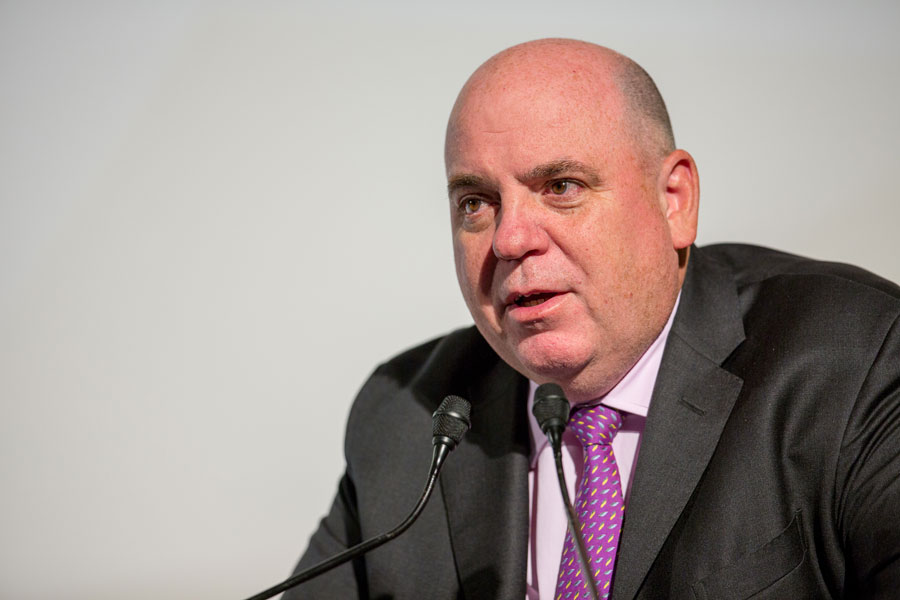
Kevin Martin, Group General Manager, Regional Head of Retail Banking and Wealth Management Asia-Pacific, HSBC, closed the day. “I trust like me you found the day engaging and stimulating – and at times frustrating. You think about how much progress we’ve made, and all that’s left to do. John made the point earlier that it’s our duty to create a world where our children can prosper and not feel like there’s a glass ceiling. Today we heard stories of great challenges. And they’re not challenges I’ve had. We do need to stand up. This is more than a job, it’s an obligation. At HSBC we have made great progress. We’re proud to have hosted today’s Summit.”
The day prior to the Summit, Bloomberg hosted an OutNEXT Salon for emerging leaders and a discussion for HR/Talent leaders, with engaging development from McKinsey & Co. and a presentation of the “Out in the World” research from the Center for Talent Innovation. Some photos from that session follow:
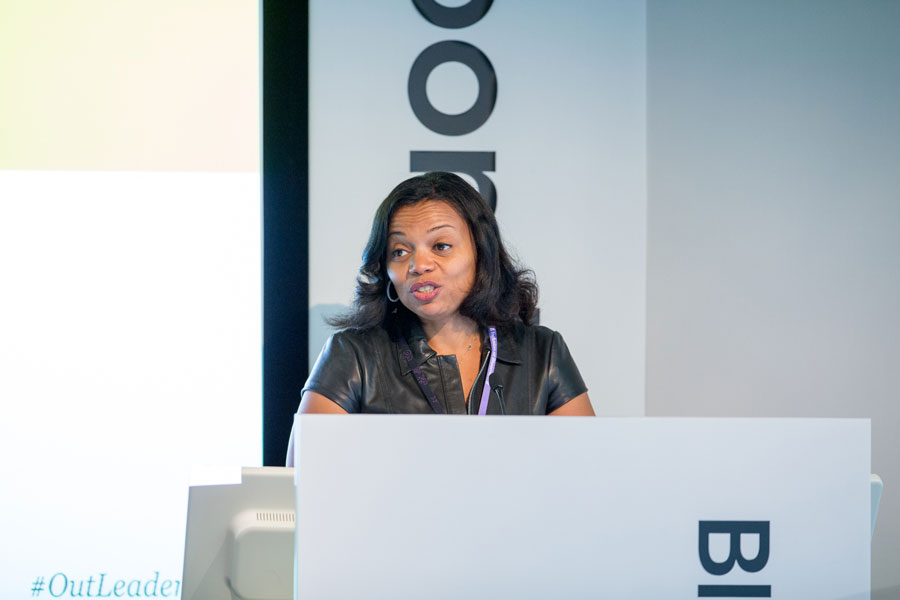
Erika Irish Brown, Global Head of Diversity & Inclusion, Bloomberg L.P.
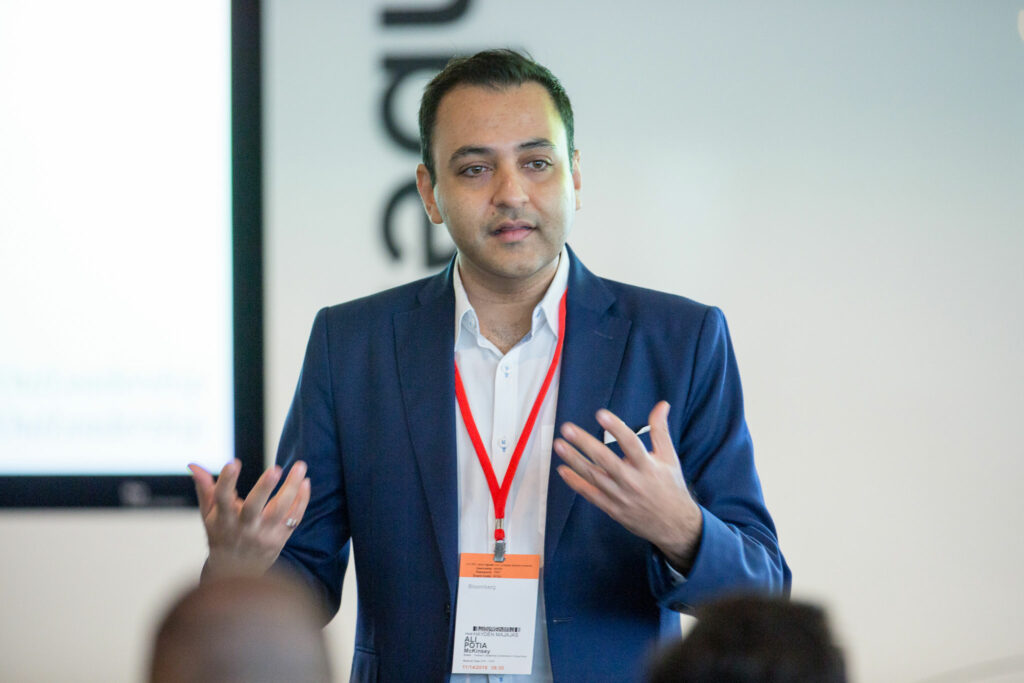
Ali Potia, Partner, McKinsey & Co., presented the leadership development content
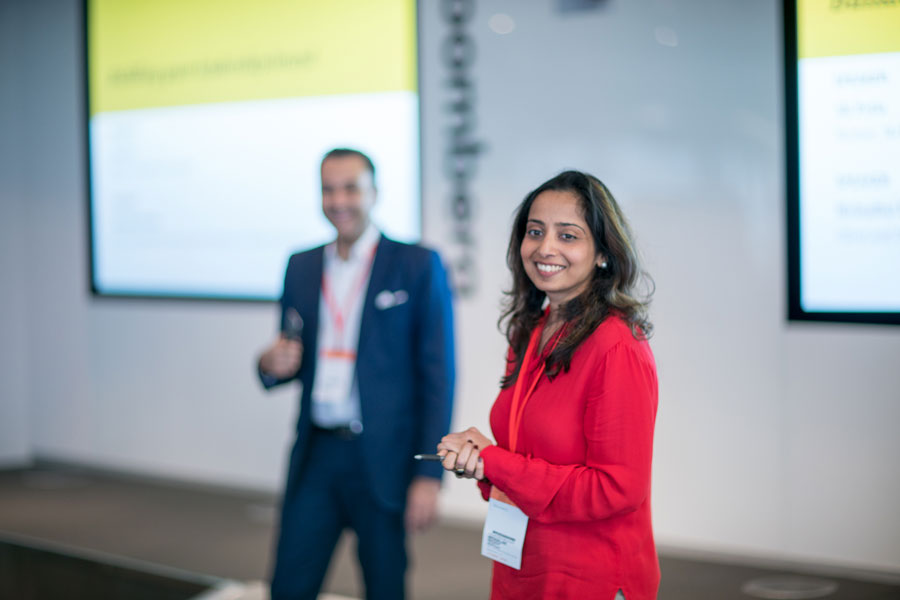
As did Mrinalini Reddy, Client and Internal Communications Specialist, McKinsey & Co.
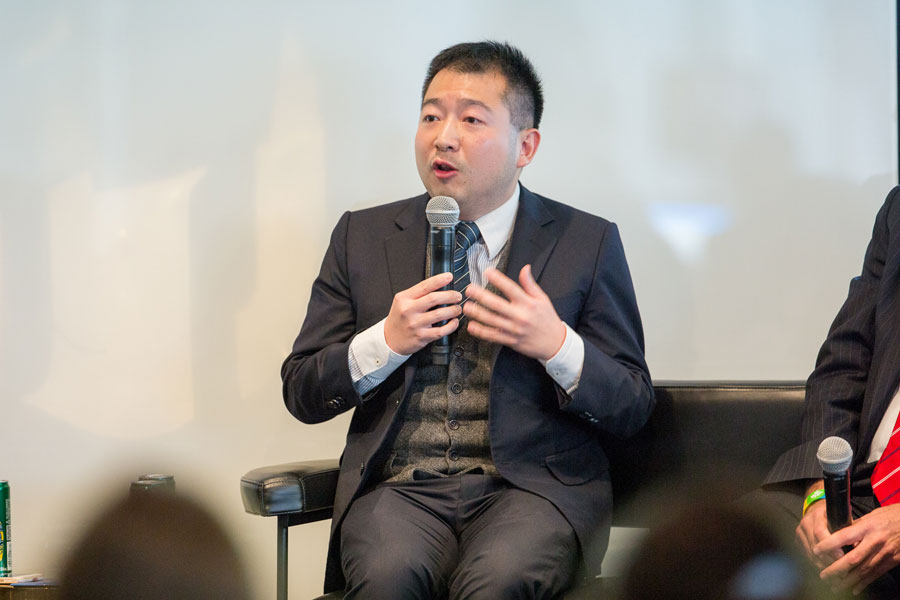
Yiu-Tung Suen, Assistant Professor, Chinese University of Hong Kong, discussed his original research into Hong Kong residents’ and LGBT people’s attitudes toward LGB-friendly Business organizations.
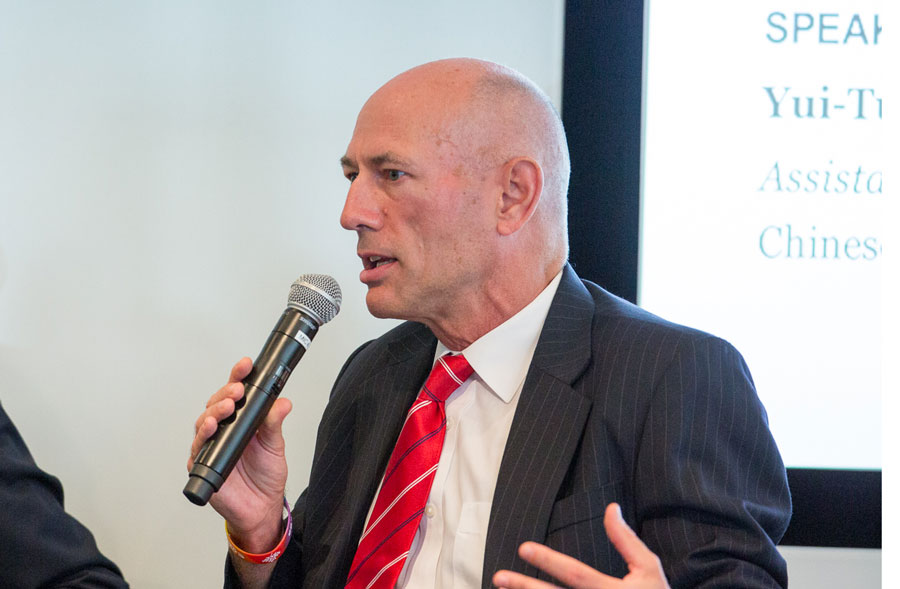
Robert Wintemute, Professor of Human Rights Law, King’s College, London, also spoke.